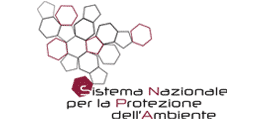COMUNICATO STAMPA
24/04/2025
- Acque superficiali
Lo studio della comunità di macroinvertebrati benthonici non evidenzia motivi di allarme rispetto ad eventuali impatti dovuti alla presenza di rifiuti in alveo ...segue
NOTIZIE BREVI
22/04/2025
Rubrica dialoghi con l'autore e con l'autrice. Stefano Laporta risponde alle domande di ARPAT ...segue
NOTIZIE BREVI
18/04/2025
La terza e ultima tappa del percorso dei “Dialoghi sulla terra e sul creato. L’ecologia integrale ai tempi della crisi climatica” ...segue
NOTIZIE BREVI
17/04/2025
Esiste un diritto individuale all'ambiente salubre? Hanno dialogato sul tema Laura Magi ed Emanuela Chiang ...segue
NOTIZIE BREVI
16/04/2025
Custodire le piazze, i giardini, le strade e le scuole: curarsene con amore. Hanno dialogato sul tema Francesco Ferrini e Suor Costanza Pagliai ...segue
COMUNICATO STAMPA
11/04/2025
- Acque superficiali
Non sono evidenti impatti peggiorativi delle caratteristiche del torrente nel passaggio tra monte e valle della frana ...segue
COMUNICATO STAMPA
10/04/2025
- Biodiversità
Domani 11 aprile 2025 si celebra la Giornata nazionale del Mare ...segue
COMUNICATO STAMPA
09/04/2025
La tappa toscana del ciclo di incontri “Filo verde per un Giubileo sostenibile”, promosso dal Sistema nazionale per la protezione dell’ambiente ...segue
NOTIZIE BREVI
08/04/2025
Intervista a Lorenzo Orioli, coordinatore toscano dei Circoli Laudato Si’ ...segue
23/04/2025
- Acque marine e costiere
Firenze, 29 aprile 2025 - Florence, 29 avril 2025 ...segue
Eventi conclusi
25/03/2025
Evento del ciclo "Filo verde per un Giubileo sostenibile" ...segue
DOCUMENTI
05/03/2025
La valutazione è stata effettuata dal Dipartimento di Statistica, Informatica, Applicazioni “G. Parenti” dell'Università di Firenze ...segue
DOCUMENTI
18/02/2025
Presentazione Antonio Melley, ARPAT 11 febbraio 2025 ...segue
DOCUMENTI
12/02/2025
- Aria - qualità
DOCUMENTI
07/02/2025
- Aria - qualità
La campagna è stata effettuata dal 15/2/2023 al 15/01/2024 ...segue
DOCUMENTI
07/02/2025
Previsto nel piano anticorruzione e nel codice di comportamento ...segue
NORMATIVA
29/01/2025
- Rifiuti
GU Serie Generale n.49 del 28-02-2025 ...segue
DOCUMENTI
27/12/2024
- Acque sotterranee
DOCUMENTI
20/12/2024
- Acque sotterranee
Risultati dell'analisi effettuata da ARPAT sui report prodotti da Tecne (ex Spea) ...segue
DOCUMENTI
20/12/2024
Risultati dell'analisi effettuata da ARPAT sui report prodotti da Tecne (ex Spea) ...segue
DOCUMENTI
19/12/2024
La Relazione fornisce un contributo significativo per conoscere nel dettaglio gli uomini e le donne nell’organizzazione ARPAT. ...segue
DOCUMENTI
13/12/2024
- Aria - qualità
BOLLETTINO
24/04/2025
- Ambiente e salute
Le stazioni di campionamento sono collocate ad Arezzo, Firenze, Grosseto e Siena ...segue
BOLLETTINO
24/04/2025
- Ambiente e salute
Le stazioni di campionamento sono collocate ad Arezzo, Firenze, Grosseto e Siena ...segue
BANCA DATI
14/04/2025
- Acque marine e costiere
Dati relativi ai campionamenti dell'acqua di mare finalizzati alla valutazione dell'idoneità alla balneazione - stagione 2025 ...segue
BANCA DATI
14/04/2025
- Acque marine e costiere
Dati relativi ai campionamenti della stagione 2025 ...segue
BANCA DATI
14/04/2025
- Acque marine e costiere
Dati relativi ai campionamenti della stagione 2025 ...segue
BANCA DATI
14/04/2025
- Acque marine e costiere
Dati relativi ai campionamenti della stagione 2025 ...segue
BANCA DATI
14/04/2025
- Acque marine e costiere
Dati relativi ai campionamenti della stagione 2025 ...segue
BANCA DATI
14/04/2025
- Acque marine e costiere
Dati relativi ai campionamenti della stagione 2025 ...segue
BOLLETTINO
11/04/2025
- Acque superficiali
Bollettino mensile con i dati del monitoraggio della Laguna di Orbetello ...segue
BOLLETTINO
02/04/2025
- Ambiente e salute
Bollettino mensile con i dati del campo magnetico generato dall'elettrodotto "La Spezia - Acciaiolo" ...segue







